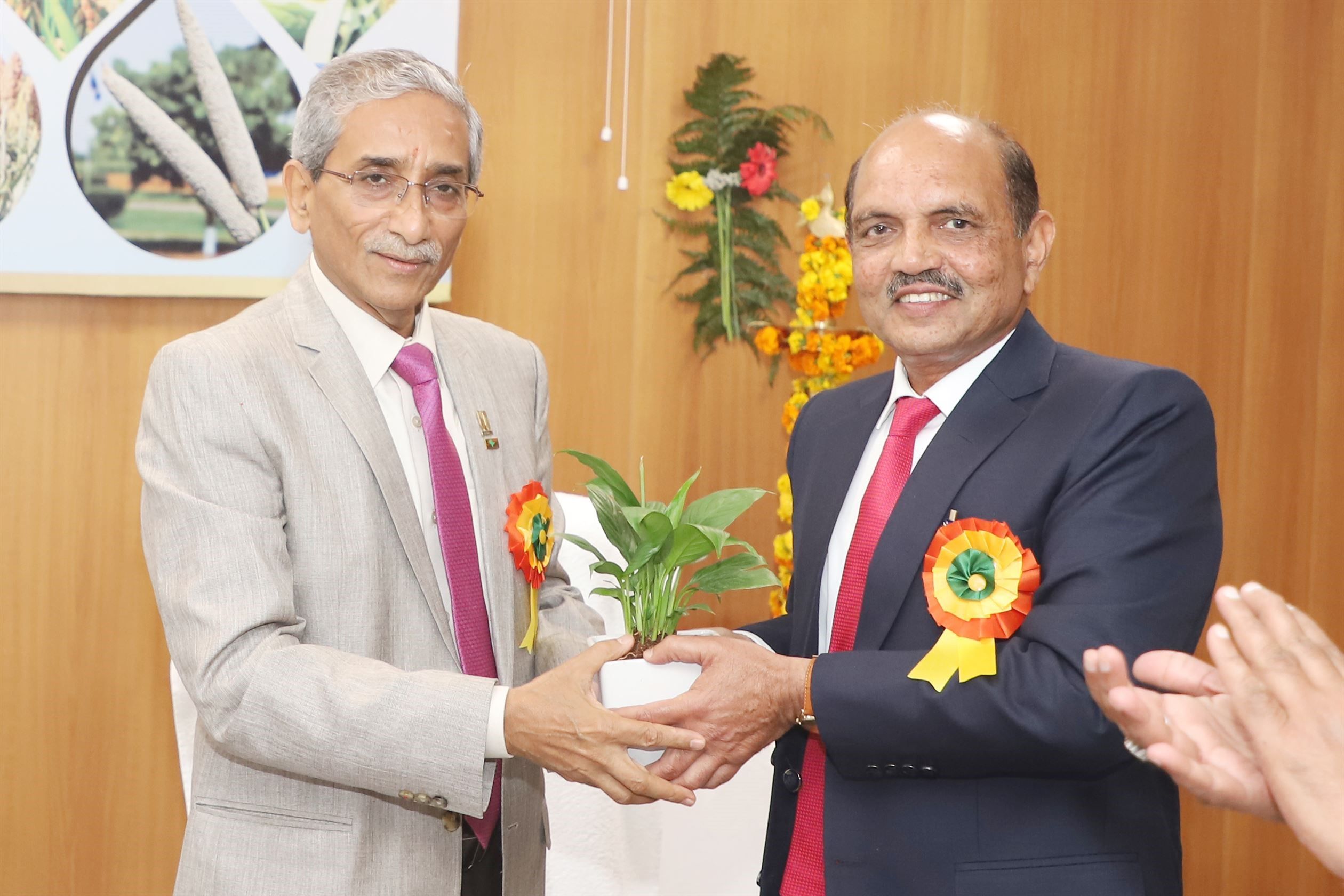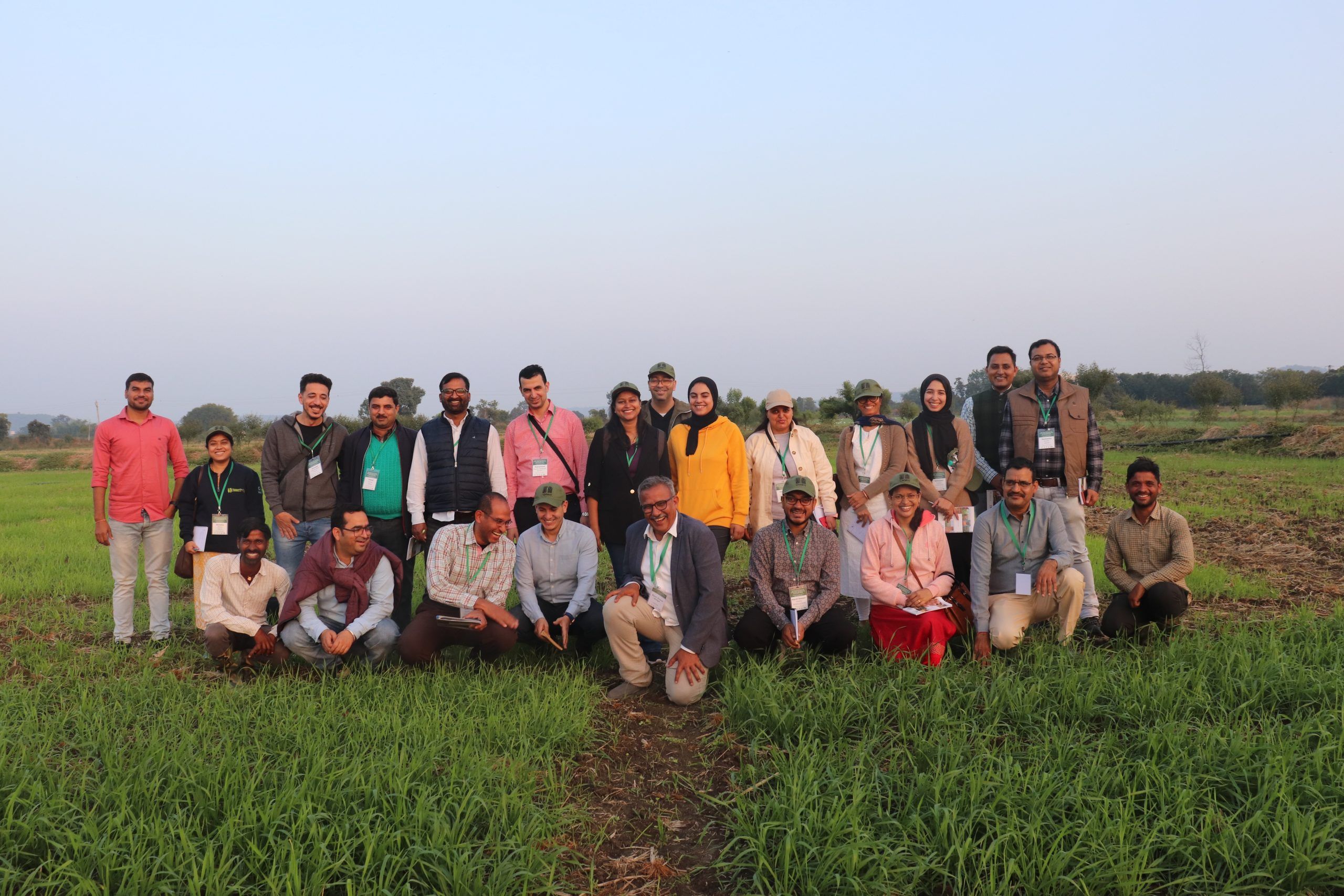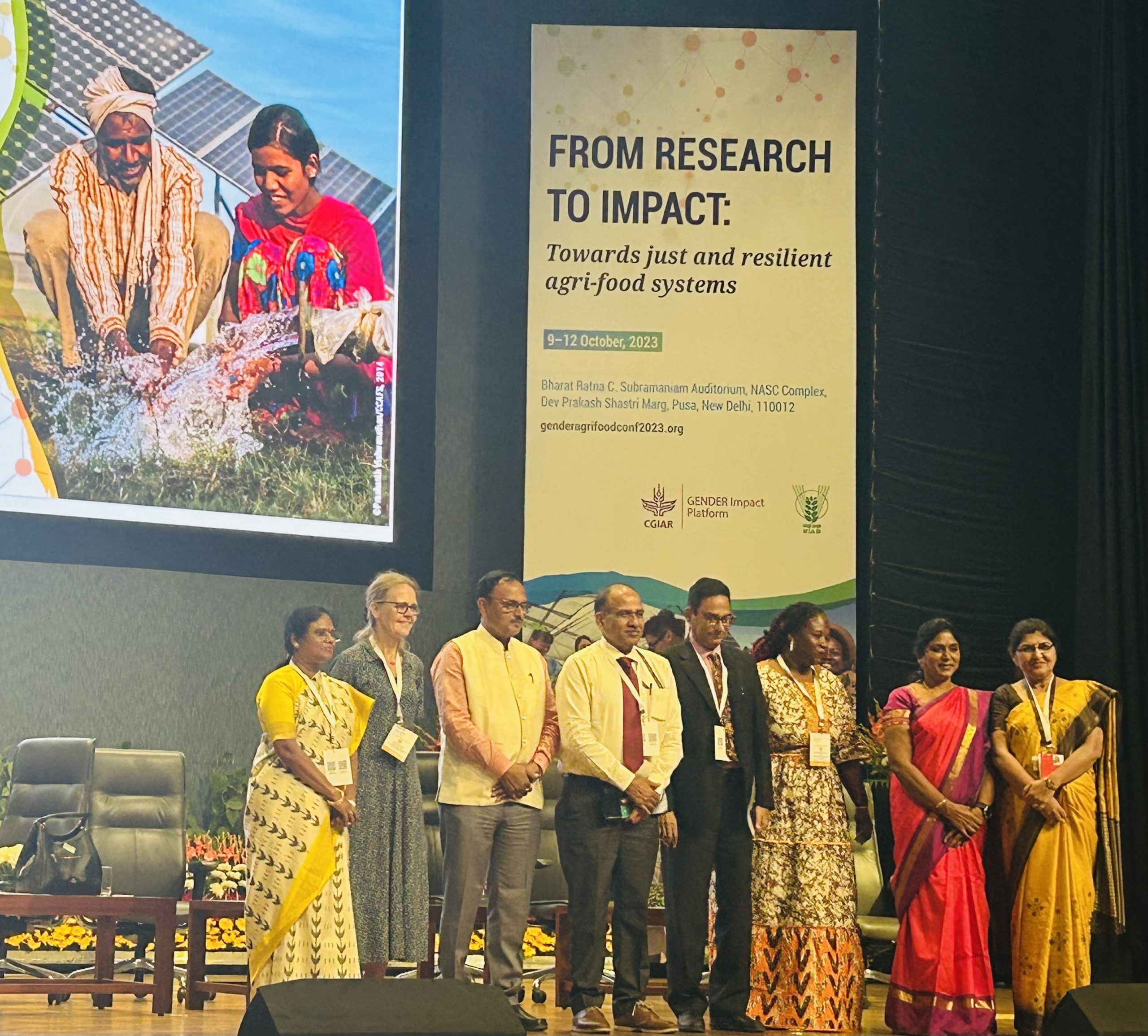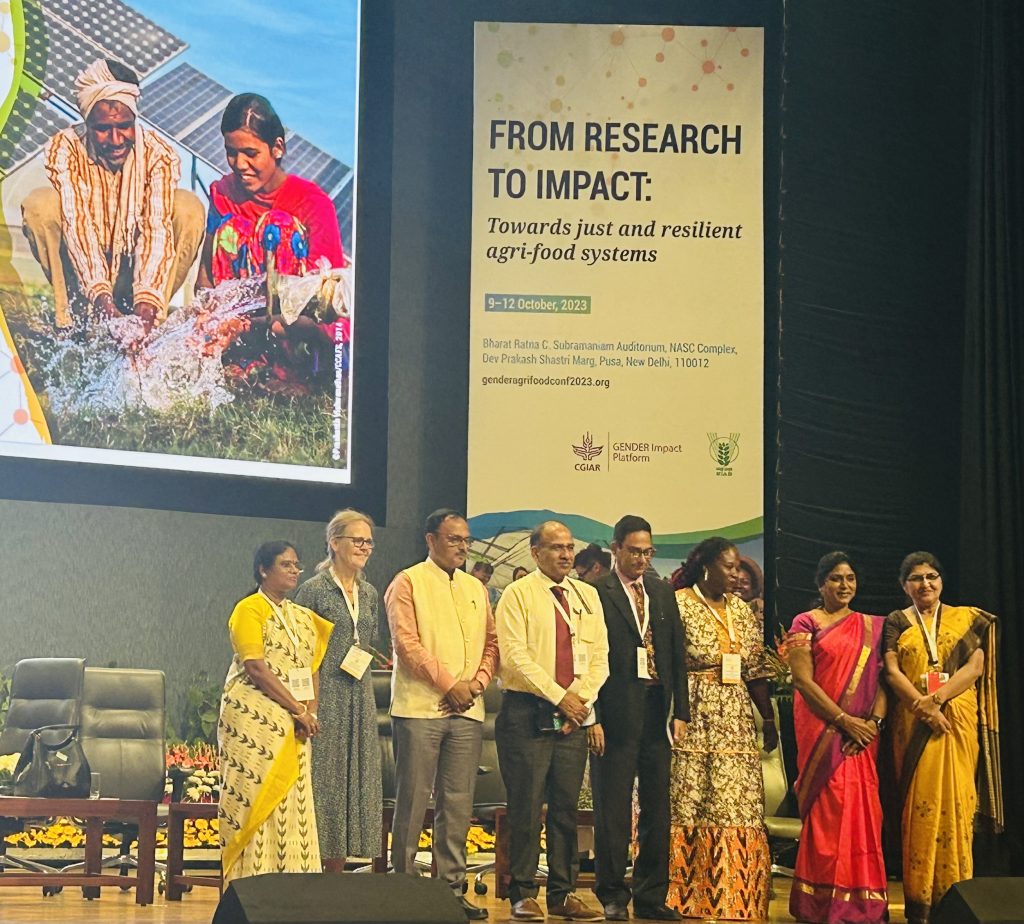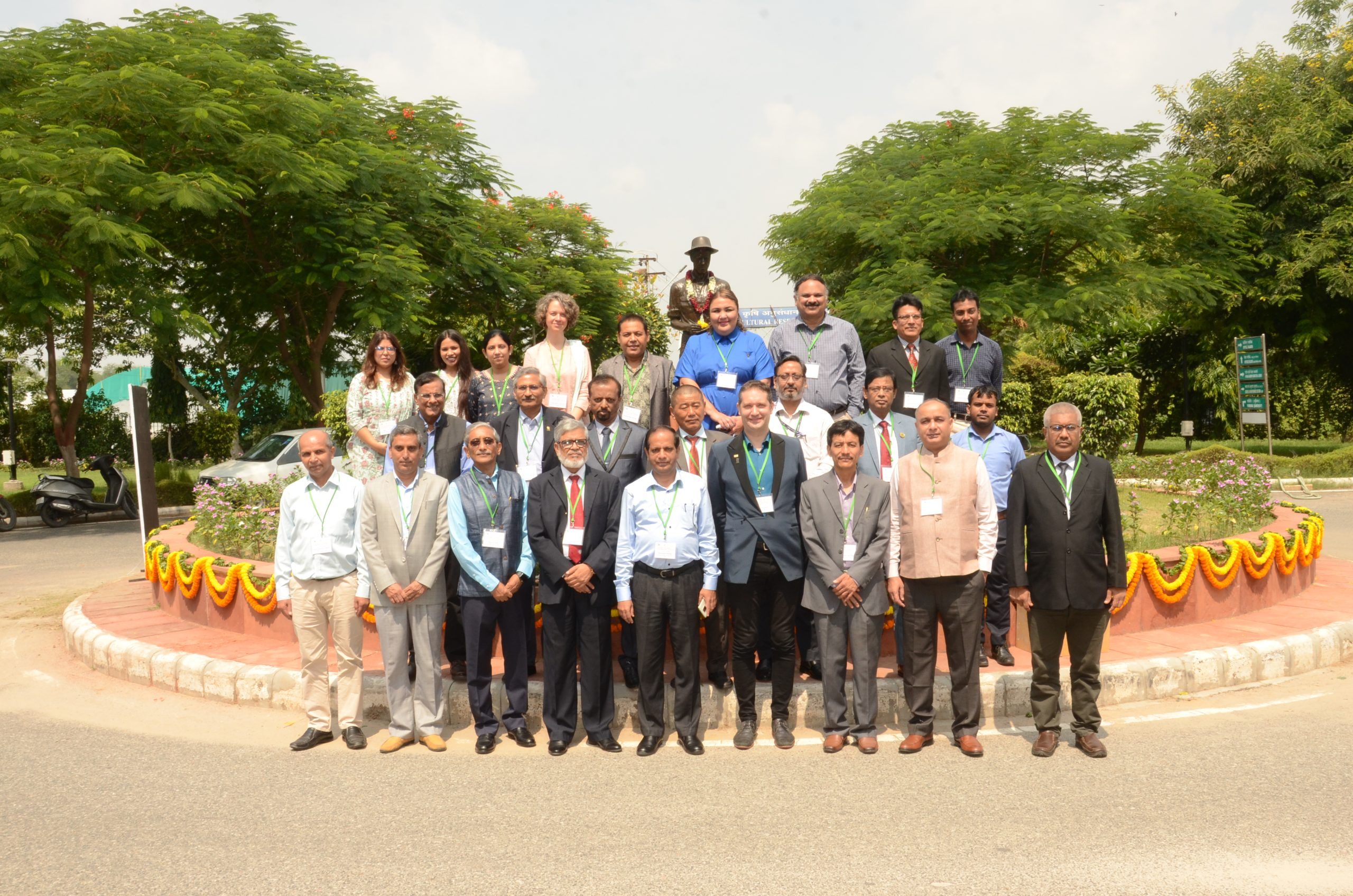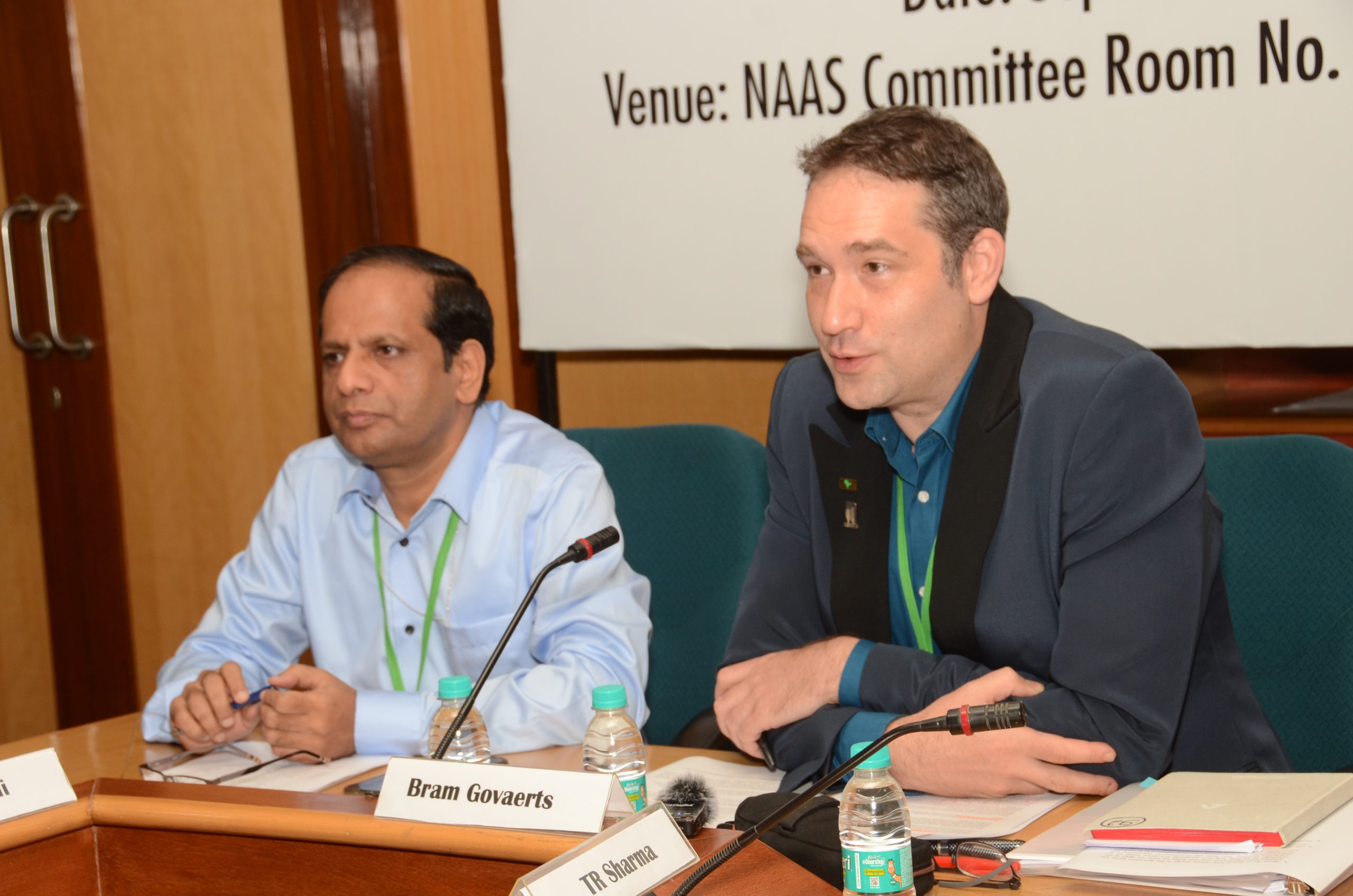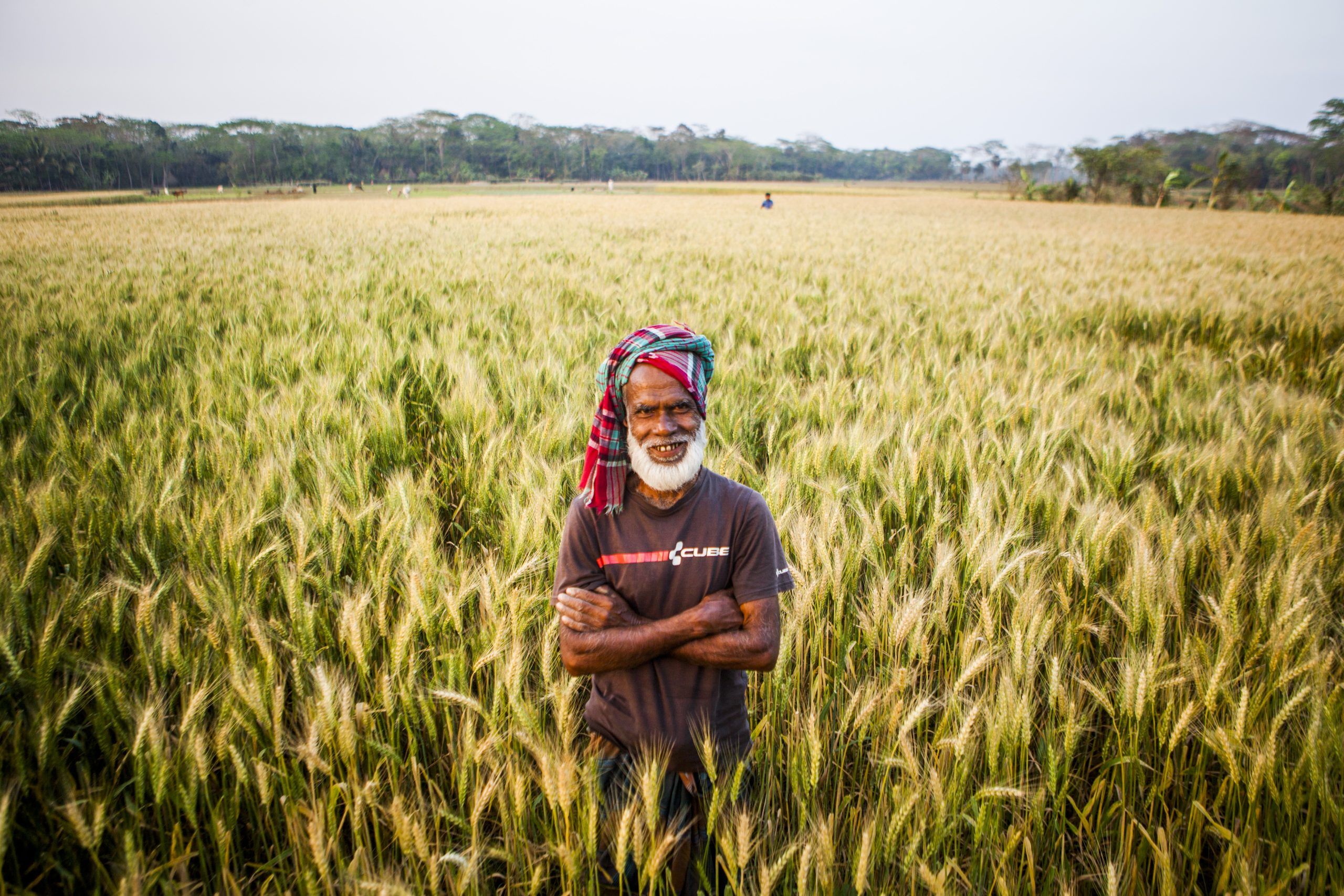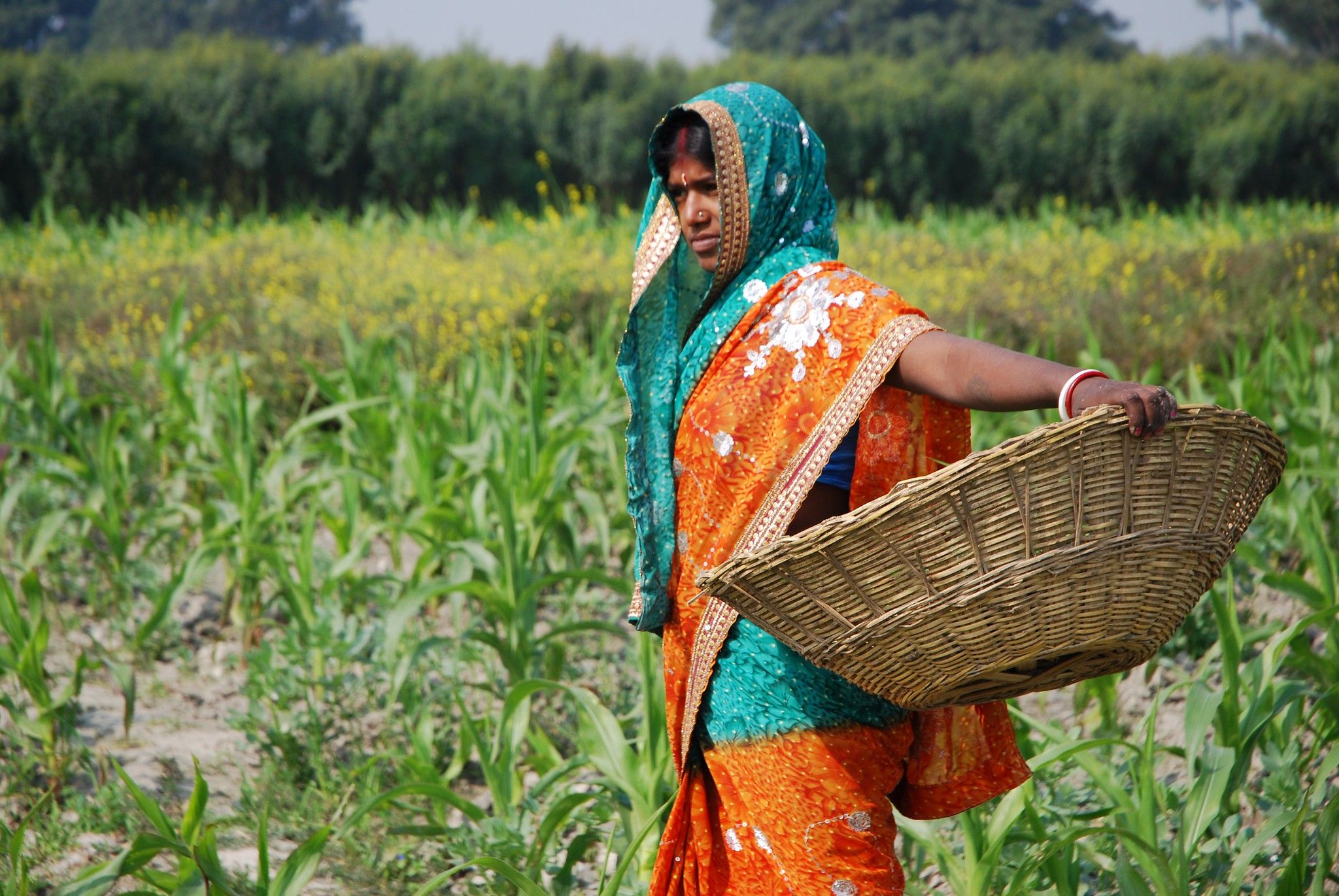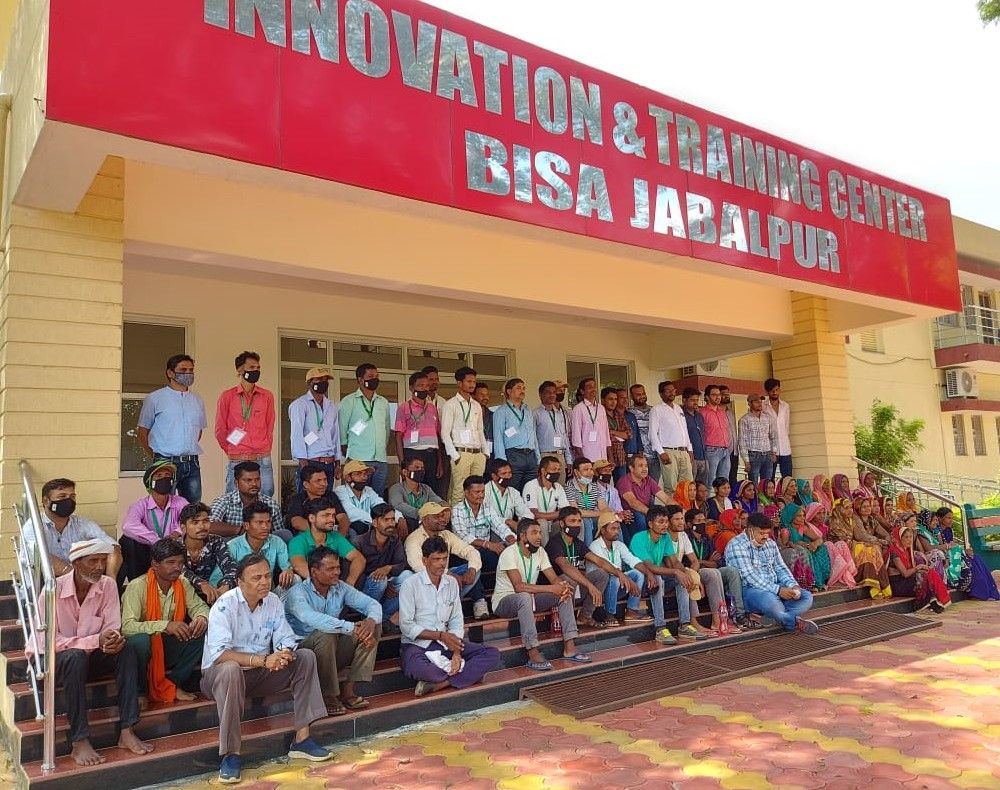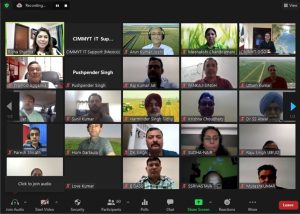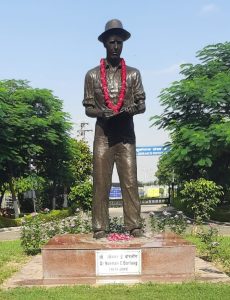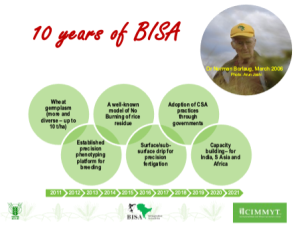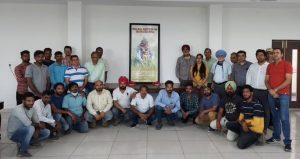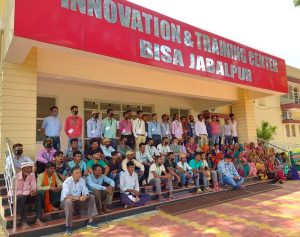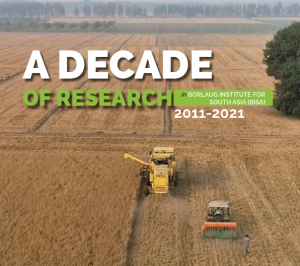Arun K Joshi receives prestigious Sh. VS Mathur Memorial Award
The Society for the Advancement of Wheat and Barley Research (SAWBAR), ICAR-IIWBR, Karnal, bestowed the prestigious Sh. VS Mathur Memorial Award 2023 for outstanding contribution in the field of Wheat Crop Improvement.
T Mohapatra, former secretary of India’s Department of Agricultural Research and Education and director general of the Indian Council of Agricultural Research (ICAR), and Gyanendra Singh, director of the Indian Institute of Wheat & Barley Research (IIWBR) at ICAR, presented the award at the ceremony on March 27, 2024.
As recipient of this award Joshi, who is the managing director of the Borlaug Institute for South Asia (BISA), CIMMYT country representative for India, and CIMMYT regional representative for South Asia, also delivered the Sh. VS Mathur memorial lecture during the ceremony. In his speech, Joshi spoke about past and present developments in wheat improvement and emphasized the importance of wheat across the globe, touching on the post-Green Revolution era and the critical timeline of events in wheat improvement. He delved into the factors responsible for variations in wheat yield and how to meet the rising demand for wheat consumption.
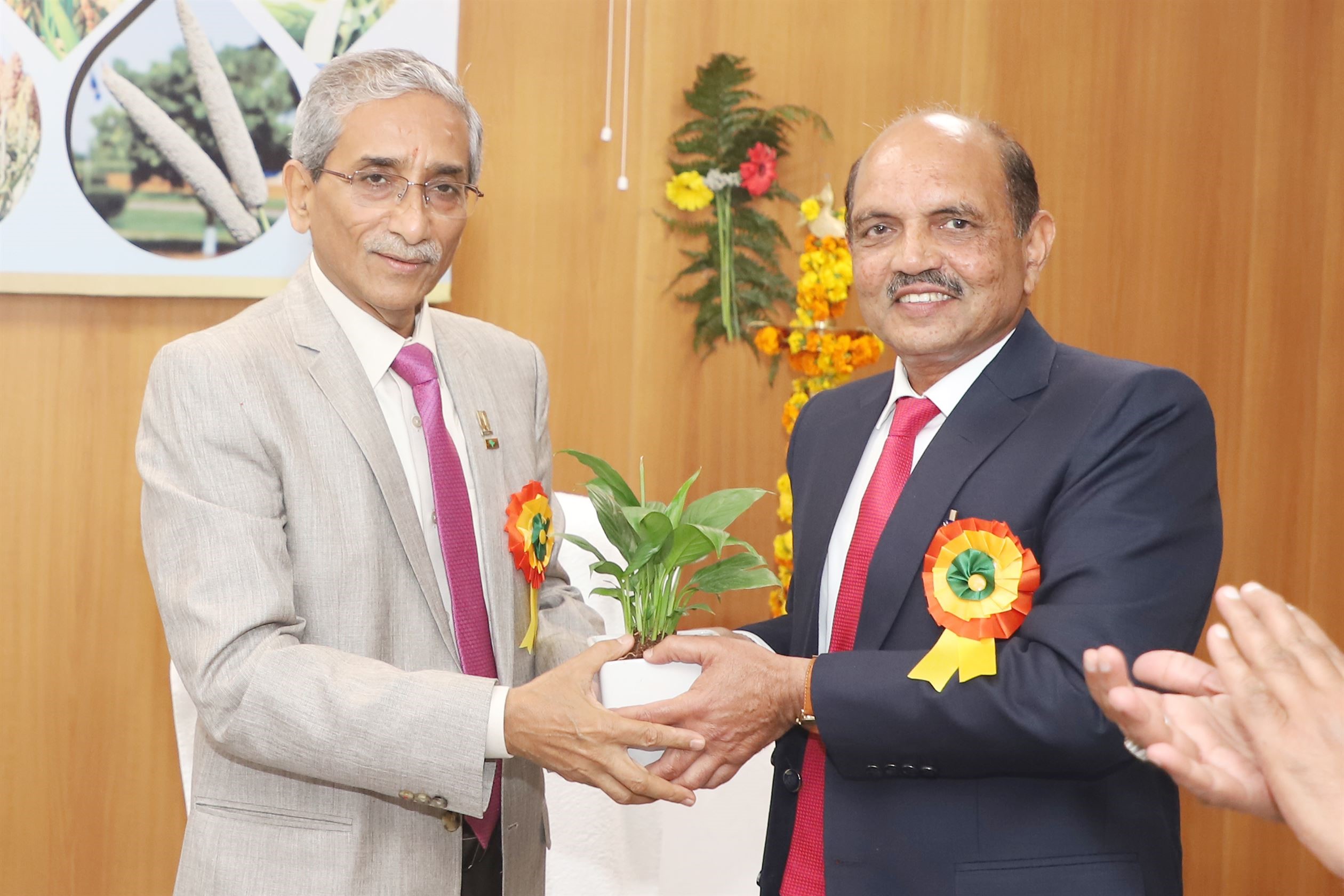
Joshi advised that countries like India must bridge the yield gap by improving management in farmers’ fields, co-learning from other spring wheat-growing countries like Mexico and Egypt, and investing in science to address climate change. He also discussed opportunities to integrate modern science across all disciplines: genomics, gene editing, mechanization, robotics, AI, weed management, water, and nutrient use efficiency.
Talking about the future of wheat production, Joshi stressed the need to focus on traits that will be more important in the future, with an emphasis on accelerated genetic gain, gene-edited wheat, and how to breed heat-tolerant (40° C) varieties using various innovative tools and technologies.
About CIMMYT:
CIMMYT is a cutting edge, non-profit, international organization dedicated to solving tomorrow’s problems today. It is entrusted with fostering improved quantity, quality, and dependability of production systems and basic cereals such as maize, wheat, triticale, sorghum, millets, and associated crops through applied agricultural science, particularly in the Global South, through building strong partnerships. This combination enhances the livelihood trajectories and resilience of millions of resource-poor farmers, while working towards a more productive, inclusive, and resilient agrifood system within planetary boundaries.
CIMMYT is a core CGIAR Research Center, a global research partnership for a food-secure future, dedicated to reducing poverty, enhancing food and nutrition security and improving natural resources.
For more information, visit cimmyt.org.
About the Society for the Advancement of Wheat and Barley Research (SAWBAR):
SAWBAR was founded in 2007 and is housed at ICAR-Indian Institute of Wheat and Barley Research Karnal (Haryana) India. The Society presently has 300 life members and more than 320 annual and student members. SAWBAR is playing a significant role in bringing wheat and barley researchers on one platform for the exchange of innovative research and dissemination of knowledge related to the latest research happenings in the area of wheat and barley improvement. Annually, SAWBAR gives awards to pioneer cereal workers in various award categories.
About the Sh. VS Mathur Memorial Award:
The Sh. VS Mathur Memorial Award was constituted in year 2018 in the memory of eminent wheat worker Sh. VS Mathur. Mathur was one of the pioneer wheat workers who worked tirelessly with MS Swaminathan and HK Jain and developed a large number of high-yielding wheat varieties viz. Heera, Moti, Janak (HD 1982), Arjun (HD 2009), HD 2177, HD 2182, HD 2204, HD 2236, HD 2278, HD 2281, HD 2285, HD 2329, HD 2307 and HD 2327 for various regions of India.
